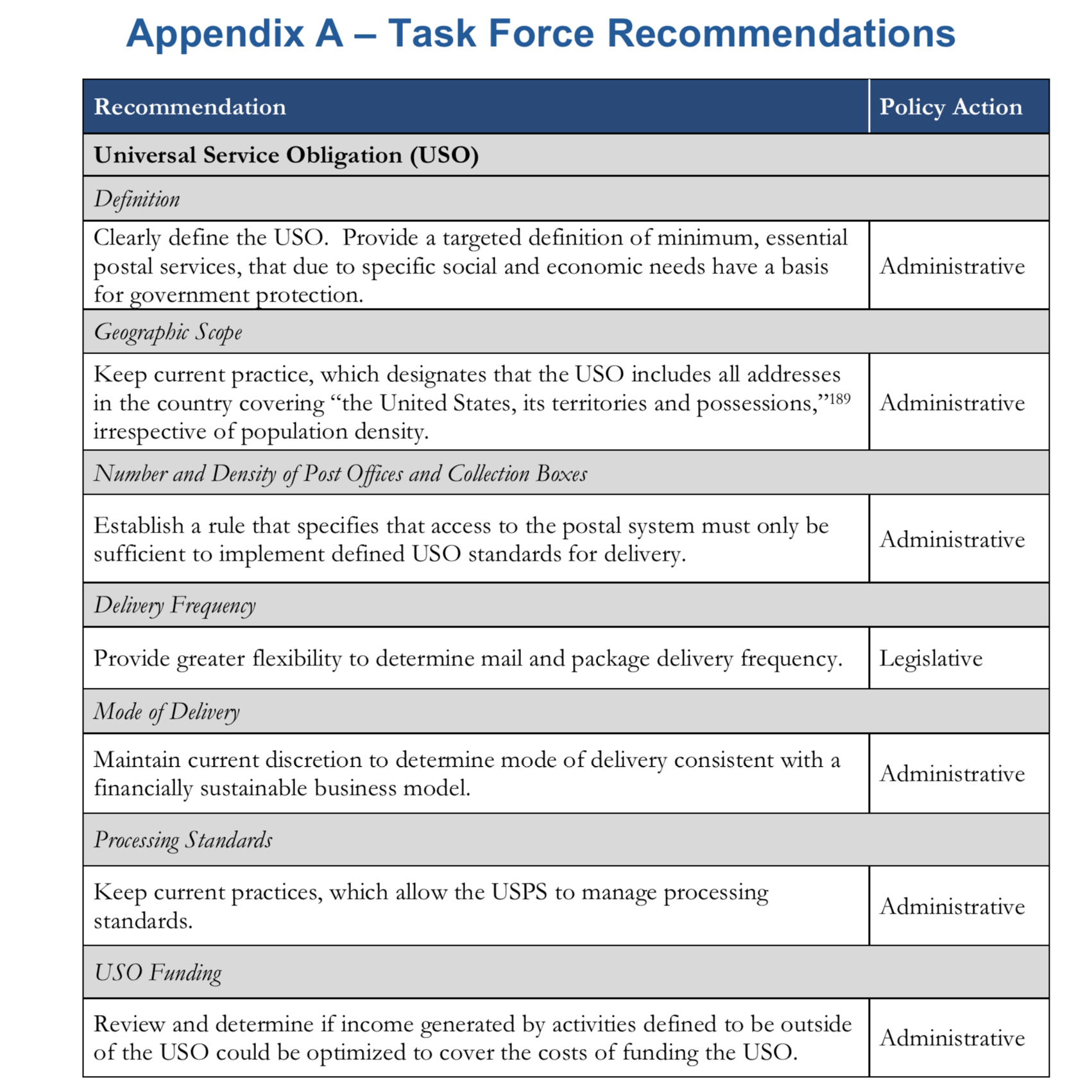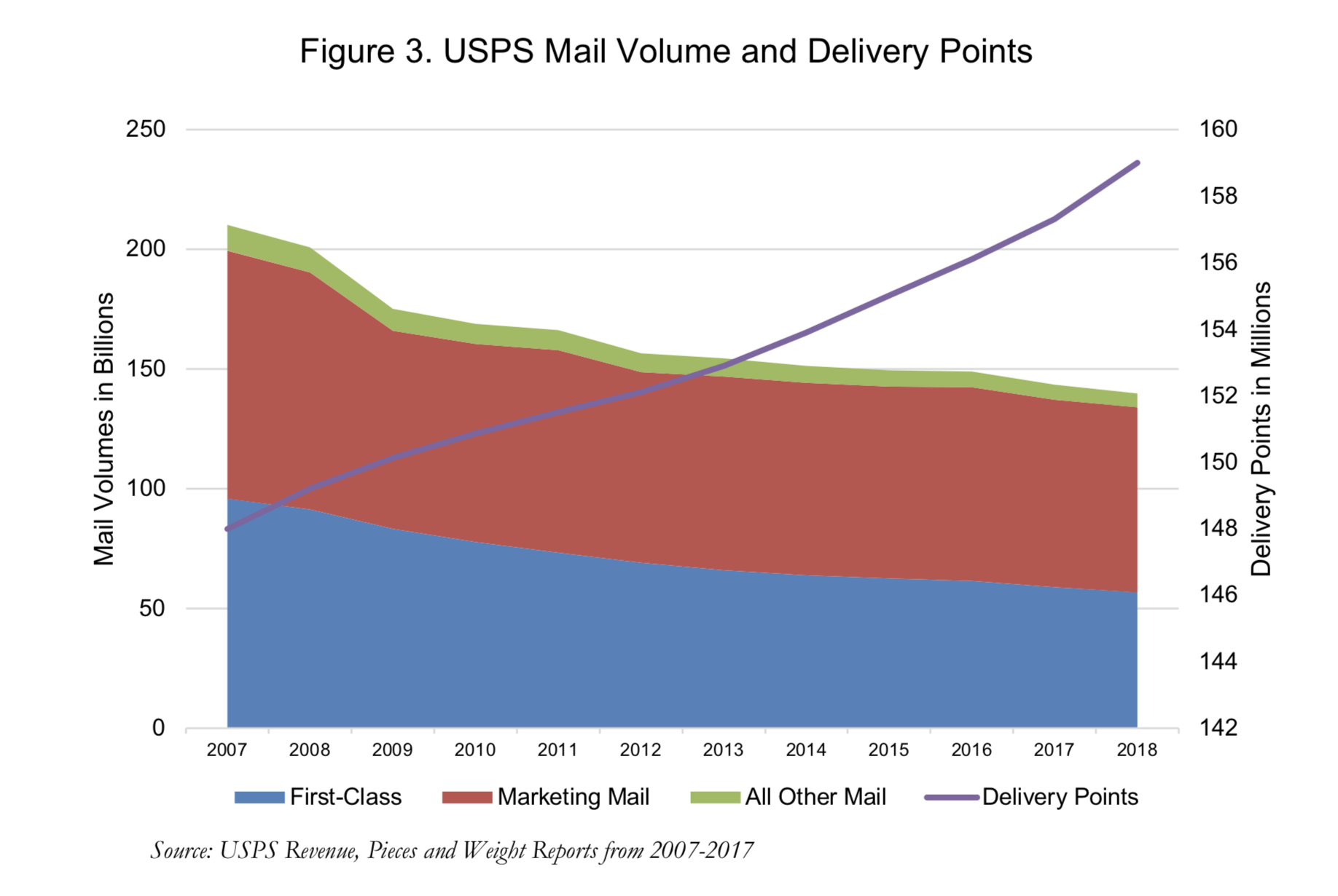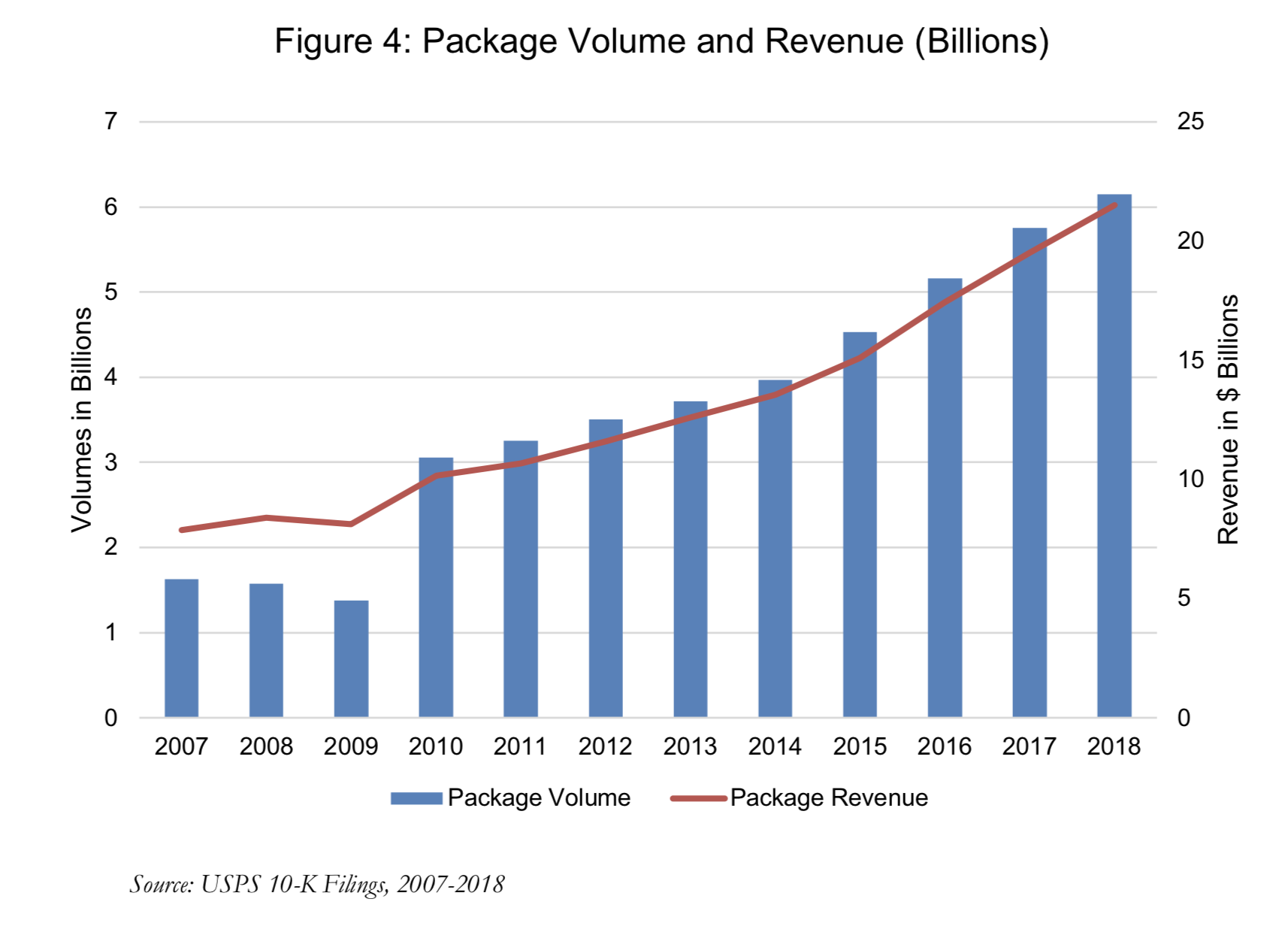PRESIDENT’S TASK FORCE ISSUES REPORT ON THE USPS
In April of 2018, the President of the United States signed an Executive Order establishing the Task Force on the United States Postal System (the “Task Force”) and charged the Task Force with the tasks of evaluating the operations and finances of the United States Postal Service (“USPS”) and developing recommendations for reforms that will ensure the sustainability of the USPS while preserving its ability to provide mail service for the United States. The Task Force was chaired by the Secretary of the Treasury and included representation from the Office of Management and Budget and Office of Personnel Management.
On December 4, 2018, the Task Force provided its report (the “Report”) to the President. The Report is available here.
As part of its review of the USPS, the Task Force interviewed stakeholders who are critical to the USPS’s ability to perform its mission. In that connection, AUSPL met with the Task Force in August of 2018. At that meeting, AUSPL stressed to the Task Force the importance of post offices in small and rural communities, and the critical role leased post offices play in the USPS’s ability to perform its mail delivery function in those areas. By the end of the meeting, it was apparent that the Task Force clearly understands the importance in rural areas of preserving and strengthening the USPS and its network of rural buildings.
Some of the most important recommendations in the Task Force Report are:
- The USPS’s “universal service obligation” should be specifically defined in a manner that recognizes current conditions relating to letter mail. The definition should take into account such items as “geographic coverage for postal delivery, frequency of delivery, processing standards, mode of delivery, range of required postal products, level of access to post offices and rules for affordable postal rates;”
- Pricing of package delivery—an area in which the USPS competes with private sector companies—should ensure that competitive package delivery service is profitable for the USPS;
- The USPS should also be given additional flexibility for pricing of services in which it has a monopoly, including pricing of stamps for mail;
- The USPS should examine cost-cutting strategies, including evaluating delivery processing standards and considering private sector partnerships in the parts of the USPS’s business that support them;
- USPS employees should align its employees’ wages with those paid to other federal employees, including curtailing collective bargaining over compensation;
- The obligation to pre-fund retiree health care benefits should not be eliminated but should be re-amortized to reflect actuarial realities; and
- The USPS should explore other revenue sources and business lines, including licensing access to the mailbox to private sector businesses and co-locating with complementary businesses. However, the USPS should not seek to expand into business in which it has no expertise.
AUSPL is pleased to have been asked to assist in the work of the Task Force. The Task Force’s emphasis on preservation of efficient and effective mail service in rural America is a testament to the work of AUSPL and other similar organizations.

Recommendations from the Presidential Task Force on the United States Postal System

 PReside
PReside
